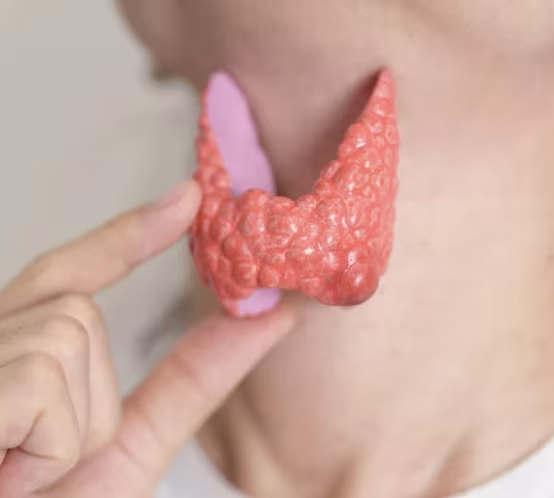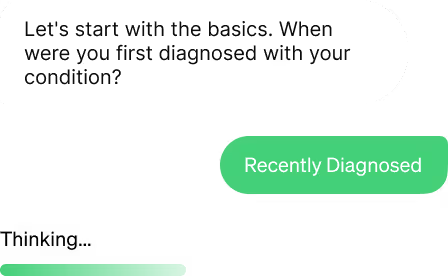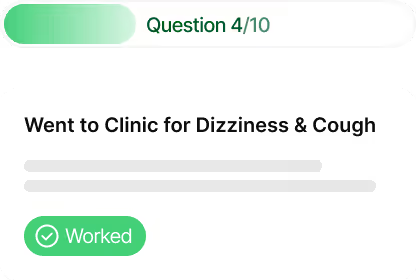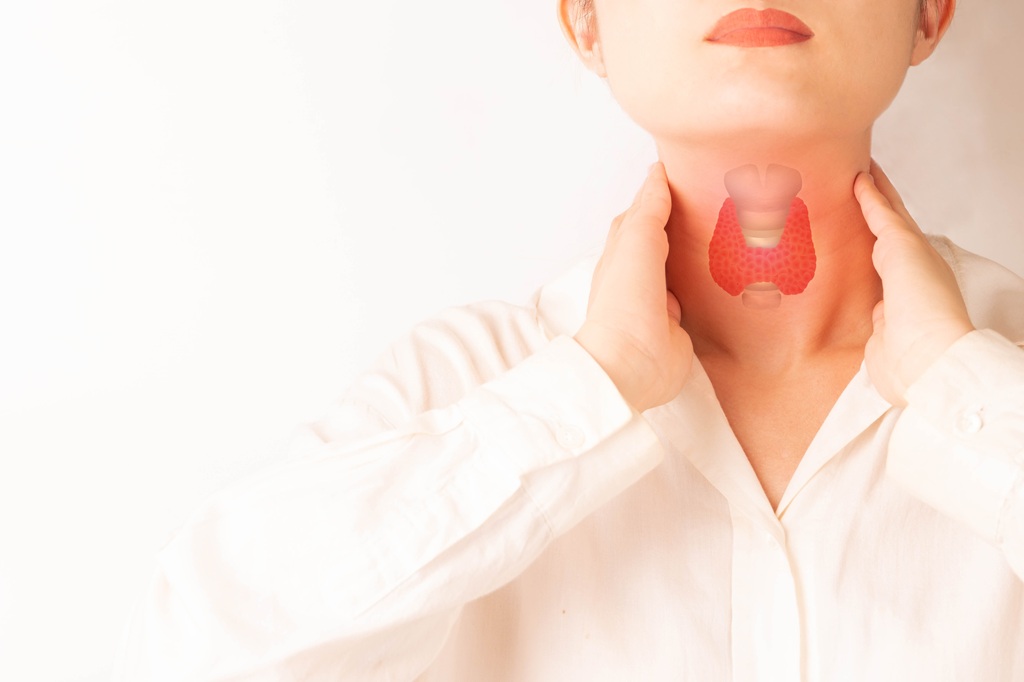Your personal
AI assistant for
Graves' Disease

.avif)
.avif)
.avif)
.avif)



.avif)


.avif)
.avif)
.avif)
.avif)



.avif)


.avif)
.avif)
.avif)
.avif)



.avif)


Our platform gives you a space to track your symptoms, prepare for endocrinology visits, and learn from insights shared by others living with Graves’ disease. Whether you’re adjusting to medication, managing thyroid fluctuations, or looking for questions to ask your doctor, mama health helps you stay organized and in control of your care.
You’re not alone in this. mama health is built to walk with you through the ups and downs of Graves’ disease, helping you understand your body, manage your symptoms with confidence, and advocate for the care you deserve.
What is Graves' disease?
The thyroid gland, located near the larynx and trachea, plays a crucial role in regulating hormones that affect many organs in the body. Graves' disease, an autoimmune condition, causes the thyroid gland to produce excessive thyroid hormone—a condition known as hyperthyroidism.
Thyroid hormones impact various systems in the body, leading to a range of symptoms when affected by Graves' disease. While this condition can occur in anyone, it is more frequently diagnosed in women and individuals over the age of 30.
Effective treatment for Graves' disease focuses on reducing the production of thyroid hormones and managing symptoms to improve overall well-being.


Graves' disease, an autoimmune condition affecting the thyroid gland, can cause a wide range of symptoms due to the overproduction of thyroid hormones.
These symptoms may vary in severity, but commonly include:
- Nervousness and Irritability: a heightened sense of anxiety or irritability
- Tremors: a slight trembling in the hands or fingers
- Heat sensitivity and sweating: Increased sensitivity to heat, excessive sweating, or warm, moist skin
- Unexplained weight loss: losing weight despite an increased appetite
- Enlarged thyroid (goiter): a noticeable swelling at the front of the neck
- Menstrual changes: irregular or altered menstrual cycles
- Sexual dysfunction: erectile dysfunction or decreased libido
- Frequent bowel movements: Increased trips to the restroom
- Thyroid eye disease (Graves' ophthalmopathy): bulging or protruding eyes
- Fatigue: persistent tiredness or lack of energy
- Skin changes (Graves' dermopathy): thick, discolored patches of skin, typically on the shins or tops of the feet
- Heart palpitations: fast or irregular heartbeat
- Sleep problems: difficulty sleeping or insomnia
How can mama health help?




Developed and supervised by medical experts
What patients are saying
There are so many testimonies and so many people like me.
I hope this platform grows so we can help so many people who feel alone with a disease.
In the end we are many and all together we can fight.❤️"
There are so many testimonies and so many people like me.
I hope this platform grows so we can help so many people who feel alone with a disease.
In the end we are many and all together we can fight.❤️"
Frequently asked questions
The healthcare system is missing a crucial piece—real patient experiences. We bring those voices back into the system, making healthcare truly patient-centric. By connecting data from patients, doctors, hospitals, and research, we help unlock new insights, improve treatments, and turn today’s incurable diseases into tomorrow’s breakthroughs.
- See what works – Learn from others with the same condition and avoid trial-and-error treatments.
- Get a clear health picture – Track your journey, compare with others, and gain deeper understanding.
- Be part of something bigger – Your experience helps improve healthcare and accelerate research.
We use the information shared on mama health to improve treatments and services for all patients. However, we ensure that no one—neither other patients, scientists, nor healthcare companies—can identify you personally.
To request the deletion of your data, simply send an email to support@mamahealth.com.

.avif)

.avif)












